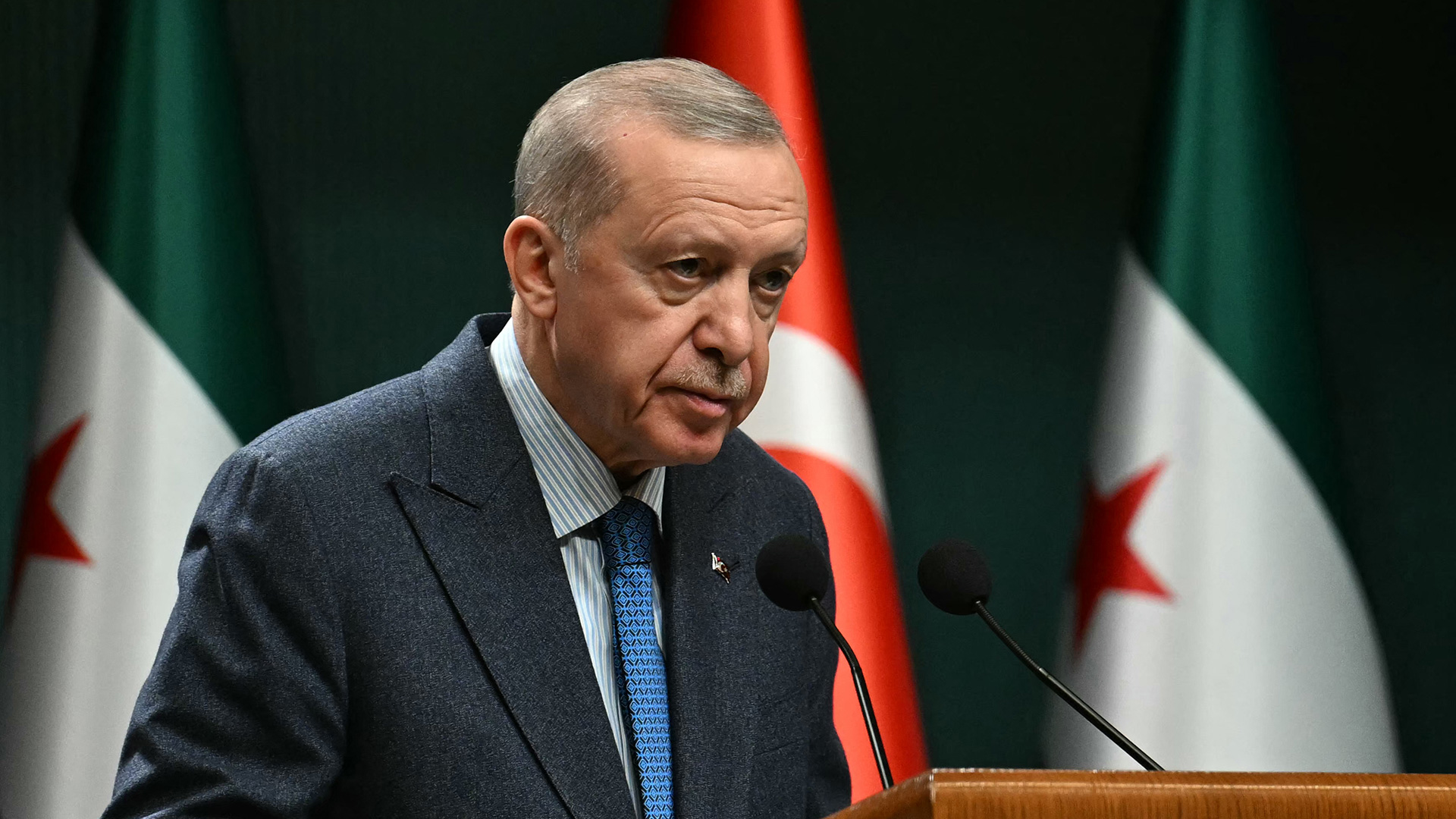Erdogan Calls for Full Implementation of Sharaa-Abdi Agreement
Recep Tayyip Erdogan described the deal as a positive step for all Syrians, noting that its success would benefit the entire Syrian population.

ERBIL (Kurdistan24) – Turkish President Recep Tayyip Erdogan on Tuesday welcomed the recent agreement between Syrian Democratic Forces (SDF) Commander Mazloum Abdi and Syria’s interim government, emphasizing that its full implementation is essential for ensuring the country’s security and stability.
Turkey Backs Agreement for Syria’s Stability
Speaking at a press conference, Erdogan described the deal as a positive step for all Syrians, noting that its success would benefit the entire Syrian population.
“The full execution of this agreement will contribute to Syria’s security and stability. All our Syrian brothers and sisters will benefit from it,” Erdogan stated. He also reiterated Turkey’s commitment to Syria’s territorial integrity, emphasizing the importance of maintaining its national unity.
The Agreement: A Path to Institutional Integration
The agreement, signed on Monday between Syrian interim President Ahmed al-Sharaa and SDF Commander Mazloum Abdi, aims to integrate all civil and military institutions affiliated with the Autonomous Administration into the Syrian state. The move comes as the new government seeks to consolidate its legitimacy and establish central control over Syria’s fragmented regions.
According to the Syrian presidency, the agreement includes eight provisions, with joint committees assigned to oversee its full implementation before the end of the year. The deal outlines the full incorporation of northeastern Syria’s institutions, including border crossings, airports, and oil and gas fields, into Damascus’ governance structures.
Additionally, the agreement commits both sides to supporting Syria’s efforts in combating the remnants of the Assad regime and other threats to national security.
The Sharaa-Abdi agreement represents a significant shift in Syria’s political landscape, with regional and international actors closely watching its implementation and impact on the country’s future stability.
